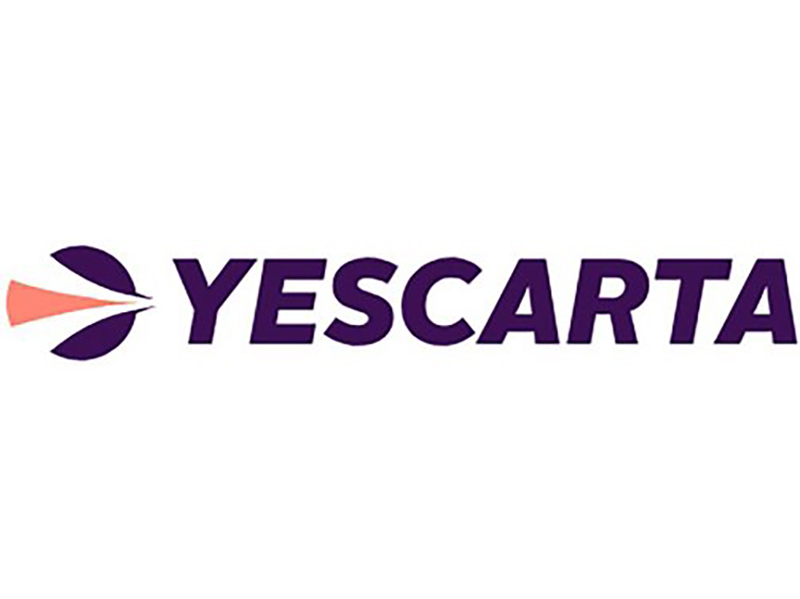
Last week, the U.S. Food and Drug Administration (FDA) approved Yescarta® for diffuse large B-cell lymphoma applicable after just one round of failed treatment. Yescarta becomes the first cancer cell and gene therapy approved for second-line use for diffuse large B-cell lymphoma.
Diffuse large B-cell lymphoma is the most common type of non-Hodgkin lymphoma. Around 18,000 people in the U.S. are diagnosed with this blood cancer each year.
In 2017, the FDA approved Yescarta for large B-cell lymphoma after two rounds of failed therapy. The agency’s new approval five years later expands the number of patients eligible for this CAR T-cell therapy by thousands.
Gilead, the parent company to Yescarta’s manufacturer, Kite, announced the news Friday via a press release. The approval makes this particular CAR T-cell therapy accessible earlier for patients with large B-cell lymphoma, a type of blood cancer.
“Today’s FDA approval brings that hope to more patients by enabling the power of CAR T-cell therapy to be used earlier in the treatment journey. This milestone has been years in the making.” — Christi Shaw, Kite’s Chief Executive Officer
Yescarta is the brand name for the CAR T-cell treatment axicabtagene ciloleucel, or axi-cel for short. It is one of six FDA-approved CAR T-cell therapies for several types of blood cancer.
The latest FDA approval stems from Yescarta’s success in the recent ZUMA-7 clinical trial. The phase 3 study tested the CAR T-cell therapy against the standard of care in the second line of treatment for non-Hodgkin lymphoma. Standard of care includes a stem-cell transplant plus chemotherapy.
Yescarta posted a better two-year survival rate and two-year progression-free survival rate (no new signs of tumor spread). The progression-free survival rate for this cell and gene therapy was approximately 2.5 times better than standard of care.
“The ZUMA-7 trial enabled us to look at the broader picture of what happens to patients after a decision is made to follow a particular treatment path.” — Frederick Locke, MD, ZUMA-7 lead investigator and co-head of the Immuno-Oncology Program at Moffitt Cancer Center
CAR T-cell therapy involves scientists modifying extracted T cells to better target cancer cells. The modified T cells have a chimeric antigen receptor (CAR) that receives directive to look for a protein expressed on a specific type of cancer cell.
Alliance for Cancer Gene Therapy funded the research into the first successful CAR T-cell therapies for blood cancers. Our efforts led to the initial FDA approvals of CAR T-cell therapies for various types of blood cancer, and the Alliance continues to promote this emerging therapy for earlier use in blood cancers as well as in testing for solid tumors.
Please donate to Alliance for Cancer Gene Therapy so we can continue our momentum and bring life-saving therapies to more patients afflicted with cancer.
Page sources
- Yescarta® Receives U.S. FDA Approval as First CAR T-cell Therapy for Initial Treatment of Relapsed or Refractory Large B-cell Lymphoma (LBCL). Gilead. Retrieved from: https://www.gilead.com/news-and-press/press-room/press-releases/2022/4/yescarta-receives-us-fda-approval-as-first-car-tcell-therapy-for-initial-treatment-of-relapsed-or-refractory-large-bcell-lymphoma-lbcl. Accessed: 04/03/2022.
- Diffuse Large B-Cell Lymphoma. Lymphoma Research Foundation. Retrieved from: https://lymphoma.org/aboutlymphoma/nhl/dlbcl/. Accessed: 04/03/2022.
- With Approval for Axi-cel in Second-line on the Horizon, CAR T-Cell Therapy Poised to Enter New Phase. American Journal of Managed Care. Retrieved from: https://www.ajmc.com/view/with-approval-for-axi-cel-in-second-line-on-the-horizon-car-t-cell-therapy-poised-to-enter-new-phase. Accessed: 02/16/2022.



